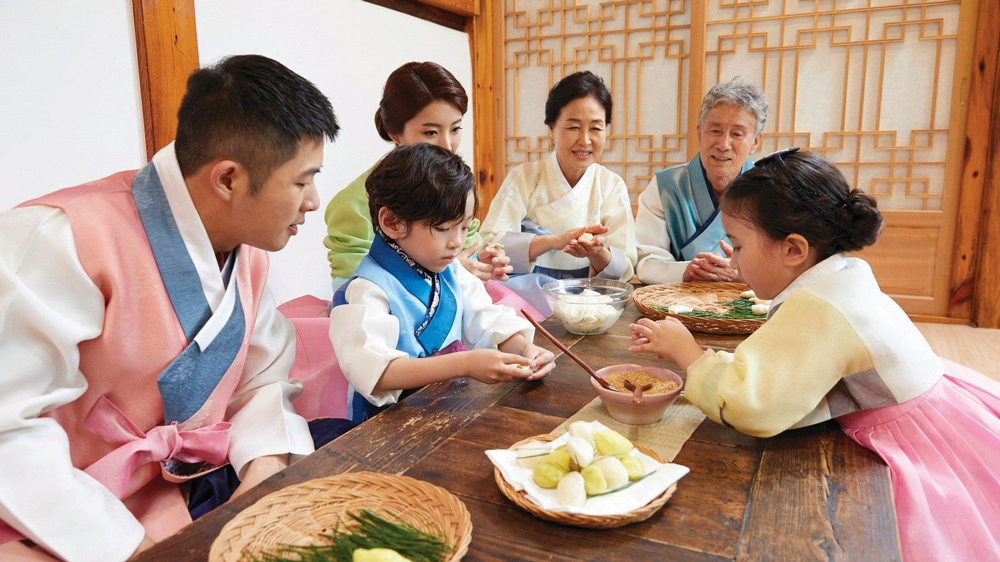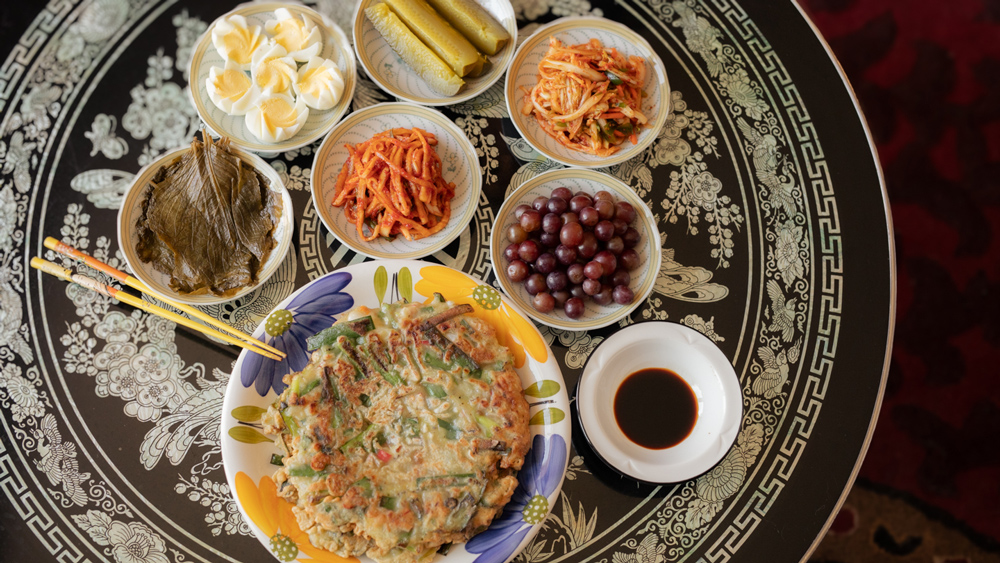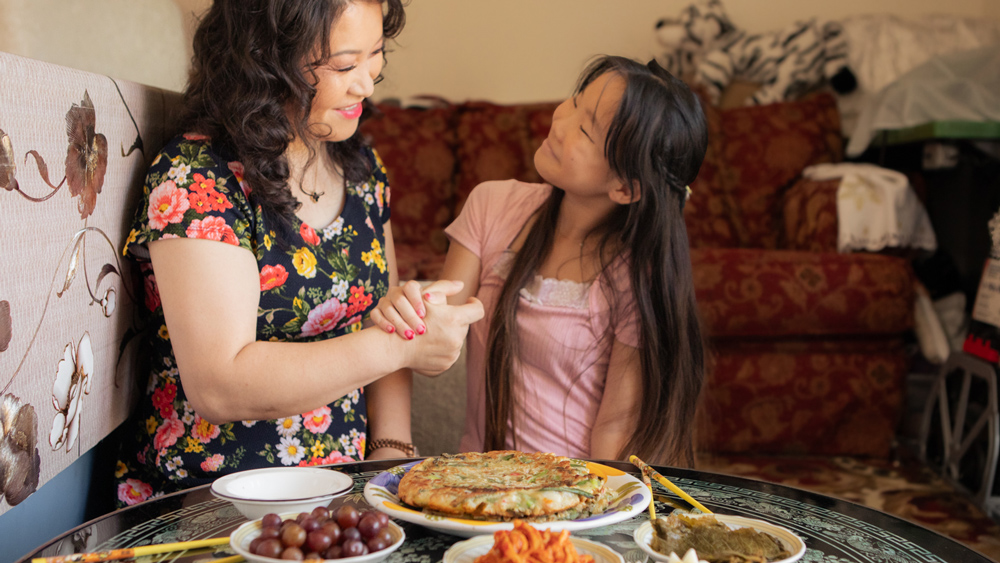The 2019 LiNK Advocacy Fellows: North Korean Defectors Raising Their Voices

Meet the new class of LiNK Advocacy Fellows! They are already adjusting to life in the U.S. and learning how to become stronger storytellers and better advocates. All four of the AFers have incredible stories they want to share with the world. Here’s a little bit about each of them and what they hope to accomplish during the fellowship! Stay tuned for updates throughout their time here!

Joy
Joy was born in 1991 in Musan, North Korea and escaped when she was 18 years old. When she reached China, the broker who had helped her escape demanded that Joy repay her immediately for her assistance. When Joy couldn’t afford to pay, the broker took her from village to village, trying to sell her as a bride.After three humiliating days, an older Chinese farmer paid $3,000 for her. She tried to find a way to escape but soon became pregnant with the man’s child and gave birth to a daughter.
In 2013, Joy was introduced to LiNK’s network in China and was finally able to reach safety. She is now a university student studying social work in South Korea and wants to dedicate her life to helping families. “I want to be able to share my story in English without a translator’s help. I want to communicate freely and express my thoughts and ideas with others. When I return to South Korea in late November, I want to be able to look back at my time in the U.S. and feel empowered and proud of my work.”
Read more about Joy’s story here.

Ilhyeok
Ilhyeok is from Saetbyeol, North Korea and was born in 1995 at the start of the famine. Growing up, Ilhyeok often missed school to help his family make ends meet by fishing and farming. In order to feed the family, Ilhyeok’s father became a broker who helped defectors living in South Korea send money to their relatives inside North Korea. But when Ilhyeok was only 12, his father was caught and imprisoned for illegally owning a Chinese cell phone. Even after he was released, the authorities kept the family under close surveillance.
Well aware of the risks they would face if they tried to escape, but dreaming of a brighter future, one night llhyeok’s father suggested that the entire family leave their homeland in search of a better life. They fled that very night, and after a long and difficult journey made it to South Korea in 2011.
Ilhyeok is now a senior Political Science and Diplomacy major at Hankuk University of Foreign Studies in Seoul and wants to work for the United Nations one day.“I want to improve my English skills because it is the international language. I want to be able to communicate with everyone so that I can raise awareness about what’s happening in North Korea. And I also want to meet new people from different backgrounds.

Dasom
Dasom was born in 1993 in Gangwon Province, North Korea. When she was seven years old, her family relocated to Hamgyung Province. Before Dasom was even born, her grandfather had been accused of being a spy and was taken away that same day, never to be seen again. Because of North Korea’s system of collective punishment, her grandfather’s alleged crimes severely restricted the jobs she could get after graduating high school. Dasom had no other choice than to join a workers’ group doing manual labor for the government.
After being sexually assaulted at work, Dasom vowed to leave North Korea. She escaped with the help of a North Korean broker but was almost sold to a Chinese broker upon reaching China. Fortunately, a group of North Korean defectors she met connected her with LiNK and she was rescued soon after. She resettled in South Korea in 2014 and dreams of becoming a florist.“I want to be able to look back after the AF program ends and reminisce on all the good memories. I also want a lot of people to remember my story and who I am as a person.”

Jeongyol
Jeongyol was born in 1998 and grew up in Pyongsong, close to North Korea’s capital city Pyongyang. Jeongyol’s father began teaching him math at a young age and by elementary school, he had mastered the middle school math curriculum. In high school, his extraordinary abilities earned him a spot on North Korea’s team for the International Mathematical Olympiad (IMO). In his first IMO in Colombia, Jeongyol won the silver medal. He went on to win the silver medal at the next three IMO competitions.
His success brought the attention of the North Korean government and they offered him a job. He asked for a deferral until after he was finished with his IMO competitions, but realized he’d eventually be forced to work for the regime. At 18, Jeongyol knew that the international competition in Hong Kong would be his last opportunity to defect while abroad. On the last day, while everyone was packing up to return home, he snuck out of the hotel and sought asylum at the South Korean consulate where his dramatic defection made international news.
Jeongyol resettled in South Korea in 2016 and is now a freshman at Seoul National University.“I want to meet people from diverse backgrounds and learn from them. I also want to share my story with as many people as possible.”
Chuseok for North Koreans | No Way Home for the Holidays
Autumn is a significant season for many people and cultures around the world. It’s a period of transition and reflection, gratitude for the days gone by, and celebration of the harvest.
In both North and South Korea, this time of year is celebrated with Chuseok, or the mid-autumn festival. Also known as “Korean Thanksgiving,” it’s a major holiday that predates the division of the peninsula. Chuseok is observed on the 15th day of the 8th month of the lunar calendar, when the harvest moon shines brightest. Traditionally, people return to their ancestral hometowns to gather with family, share a variety of delicious foods, and pay respects to their ancestors.
But for North Korean refugees, there is no going back. Holidays like Chuseok can be a bittersweet time, one of both gratitude for a life in freedom and grief over being unable to celebrate with family still inside North Korea.
“The first Chuseok in the US felt very empty and lonely. It was just me and my two-year-old daughter, Mia, back then. It didn’t feel like a holiday. I had multiple emotions at the same time. Loneliness, emptiness… there were so many feelings that I couldn’t even put into words.“
– Holly, escaped North Korea in 2013
Chuseok celebrations have evolved to look a little different in North versus South Korea, and even in countries like the US where the Korean diaspora have resettled.

Chuseok Traditions in South Korea
In South Korea, Chuseok is considered the largest and most important holiday of the year. It’s celebrated over three days, during which a “national migration” takes place as people all over the country travel to their hometowns or to go sightseeing. Tickets for planes, trains, and buses are sold out months in advance, and freeways are packed with bumper-to-bumper traffic during the holiday period.
On the morning of Chuseok, families hold a memorial service for their ancestors at home, known as charye (차례). A table of food is prepared as an offering, typically featuring rice cakes, fresh fruits and vegetables, meat dishes, and the favorite meals of deceased loved ones. Families will also visit ancestral gravesites, a custom known as seongmyo (성묘), to pay their respects and tend to the graves.

From the ancestral table to large family meals, food is a central part of Chuseok celebrations. The defining dish of this holiday is seongpyeon (송편), a chewy, sweet, and nutty half-moon shaped rice cake steamed in fresh pine needles. It’s traditionally made with rice from the year’s harvest, finely milled into flour. Preparing seongpyon becomes a family activity as each piece is shaped by hand and filled with red bean paste, toasted sesame seeds, or chestnuts.
Other holiday foods include pajeon(파전), a crispy, savory pancake made with green onions; galbijjim (갈비찜), sweet and savory braised short ribs; and japchae(잡채), glass noodles stir-fried with meat and vegetables.

How Chuseok is Celebrated in North Korea
In North Korea, Chuseok is just a one-day celebration. While it is considered a key traditional holiday, its importance has been minimized relative to national holidays like the birthdays of Kim Il-sung and Kim Jong-il, and the anniversary of the founding of the Worker’s Party.
On both traditional and national holidays, North Koreans are urged to visit the statues of Kim family leaders or the Kumsan Palace of the Sun in Pyongyang, where the bodies of Kim Il-sung and Kim Jong-il lie.
It is much less common for widespread travel to take place during Chuseok due to severe travel restrictions and poor transportation infrastructure. However, these constraints have also made it so that generations of North Koreans remain in close proximity to their hometowns and relatives. For Chuseok, people gather with their nearby family members. Just like in South Korea, they’ll prepare special foods as offerings for charye, and then visit ancestral grave sites to pay respects.
After ancestral rites, festivities become a community affair with traditional food and folk games shared amongst family, friends, and neighbors. Songpyeon is also a holiday staple, but the North Korean version is made with a minced meat and vegetable filling, and are twice as big as South Korean ones. Common folk games are yutnori (윷놀이), a board game, and ssireum (씨름), or Korean wrestling.
Holly & Mia: A Legacy of Freedom
It’s been over a decade since Holly left her hometown in North Korea. But whenever she makes pajeon (파전), it takes her right back to her childhood—sitting by the frying pan and watching her mom cook, eagerly awaiting a taste. “Pa”(파) means green onion and “jeon”(전) refers to foods that have been pan-fried or battered. There are many varieties of “jeon,” made with everything from potatoes to zucchini, seafood, kimchi, and more.
Holly saw her mom cook this dish countless times in North Korea. It was an inexpensive, everyday staple, but also an essential part of the holidays. Every year for Chuseok, the mouthwatering aroma of oil and batter would draw everyone to the kitchen, where a colorful assortment of jeon was being prepared.
Holly now lives halfway across the world from North Korea, but every year during Chuseok, she sets out an offering table for charye. For hours, she prepares foods like pajeon with great care, remembering and honoring her parents and loved ones, who she can’t be with for the holidays.

In 2016, Holly reached freedom through LiNK’s rescue networks with one-year-old Mia in her arms.
Mia is now at an age where she’s able to understand some of the things her mother went through. Holly has begun to open up more about her life in North Korea, and does her best to keep their small family connected to their Korean heritage. She takes Mia to Korean language school on Sundays, and makes an effort to celebrate cultural holidays, like Chuseok. What can’t be put into words, Holly communicates through food—their dinner table is always full of delicious Korean cooking.
In 2024, Holly received her US citizenship, nine years after her resettlement!
"When I obtained my US citizenship, it felt like my escape journey was finally complete. I cried and felt so grateful to the US for giving me a new life. My greatest happiness is seeing Mia have a childhood free of the painful hardships that defined mine.”

These days, Chuseok has become a lively gathering with the many friends and neighbors they’ve met over the years! Holly gathers with other Koreans in the community, and they go all-out preparing delicious seongpyeon and pajeon. She takes great pride in wearing traditional hanboks with Mia, and explaining each dish when guests arrive. The festivities always continue long after dinner, with Korean games like jegichagi, a version of hacky sack, and yutnori, a board game.
Living in the US, Holly and Mia have been introduced to new traditions too. Just a month after Chuseok, their community gathers again to celebrate Thanksgiving with turkey and pumpkin pie, in true American fashion.

Holly still has hope that in her lifetime, she’ll be able to celebrate Chuseok with all her family and bring Mia to visit her hometown in North Korea.
We’re working towards the day when families don’t have to be separated. To date, LiNK has rescued almost 1400 North Korean refugees and their children, reuniting over 500 people with their families in freedom. As we’re helping North Koreans, like Holly, build new lives, we’re also leading initiatives to increase change inside North Korea, through advocacy, information access, and more.
Become a monthly donor and create a long-lasting legacy of freedom. Your support will rescue North Korean refugees waiting for their chance to escape right now, and fuel work that is increasing change and opening inside North Korea.




